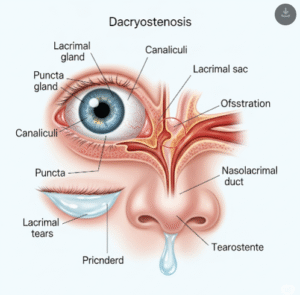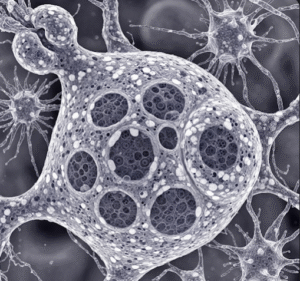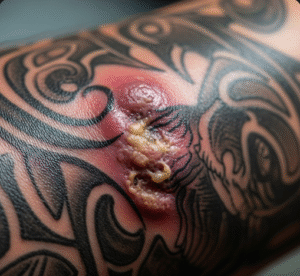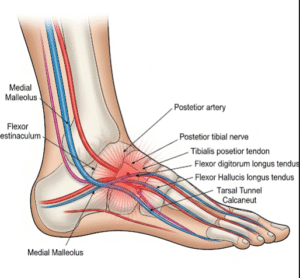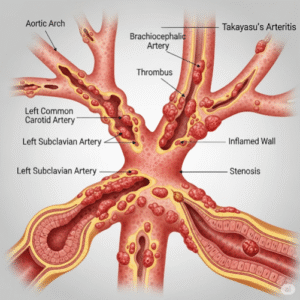Overview
Sexually Transmitted Infections (STIs), also known as sexually transmitted diseases (STDs), are infections primarily spread through sexual contact. They are a global public health issue, and South Korea actively monitors and manages STI cases through national screening programs, awareness campaigns, and accessible medical treatment under the National Health Insurance (NHI) system.
What are Sexually Transmitted Infections (STIs)?
STIs are infections that are typically transmitted via vaginal, anal, or oral sex. They can be caused by bacteria, viruses, or parasites and may affect the genital area, rectum, mouth, or other parts of the body. Some common STIs include chlamydia, gonorrhea, syphilis, HIV/AIDS, human papillomavirus (HPV), herpes simplex virus (HSV), and trichomoniasis. Many STIs can remain asymptomatic, especially in the early stages, making regular screening essential.
Symptoms
Symptoms vary depending on the specific STI, but common signs include:
- Genital discharge (unusual color or smell)
- Burning or pain during urination
- Genital sores, ulcers, or warts
- Pelvic or lower abdominal pain
- Itching or irritation in the genital area
- Pain during sexual intercourse
- Swollen lymph nodes in the groin
- Fever, fatigue, or skin rashes (in systemic infections)
Some STIs, like HIV or HPV, may not show symptoms for years.
Causes
STIs are caused by:
- Bacteria (e.g., chlamydia, gonorrhea, syphilis)
- Viruses (e.g., HIV, HPV, herpes)
- Parasites (e.g., trichomoniasis)
They are spread through:
- Unprotected sexual contact
- Sharing contaminated needles
- From mother to child during childbirth
- Blood transfusions (extremely rare due to modern screening)
Risk Factors
- Having multiple sexual partners
- Inconsistent or no condom use
- Engaging in sex work or transactional sex
- Having a history of previous STIs
- Substance abuse (linked to unsafe sexual behaviors)
- Adolescents and young adults (15–24 years)
- Men who have sex with men (MSM)
Complications
Untreated STIs can lead to:
- Infertility in both men and women
- Pelvic inflammatory disease (PID)
- Ectopic pregnancy
- Chronic pelvic pain
- Increased risk of HIV transmission
- Cervical, penile, or anal cancer (from HPV)
- Neurological or cardiovascular damage (from late-stage syphilis)
- Complications during pregnancy or birth defects
Prevention
- Use condoms consistently and correctly
- Get regular STI screenings, especially when sexually active with new partners
- Limit number of sexual partners
- Avoid sharing needles
- Vaccinate against HPV and hepatitis B
- Open communication with partners about STI status and testing
Treatment Options in Korea
South Korea provides effective, confidential, and affordable STI diagnosis and treatment through public health centers and private clinics.
1. Diagnosis
- Urine tests, blood tests, swabs, and physical exams
- Anonymous HIV testing available at public health centers
- STD screening packages at many clinics, especially in larger cities
2. Treatment
- Bacterial STIs (e.g., chlamydia, gonorrhea, syphilis): Treated with antibiotics
- Viral STIs (e.g., HIV, herpes, HPV): Managed with antiviral therapy
- Trichomoniasis: Treated with metronidazole or tinidazole
3. HIV/AIDS Care
- Available through designated treatment centers
- Antiretroviral therapy (ART) is subsidized by the government
- Counseling and support available for long-term care
4. HPV Vaccination
- Provided under the National Immunization Program (NIP) for girls aged 12–17
- Available for men and women at private clinics
5. Where to Get Care in Korea
- Public Health Centers (보건소) – Offer free or low-cost testing and treatment
- HIV anonymous testing centers (available in Seoul and major cities)
- Sexual health clinics such as:
- Seoul National University Hospital Dermatology & STD Clinic
- Korean Association for HIV/STD Prevention
- CHA Fertility Center & Women’s Health Clinics
6. Confidentiality
- STI services in Korea are confidential
- Foreign residents can access STI services with or without insurance
- Multilingual support available at some international clinics




